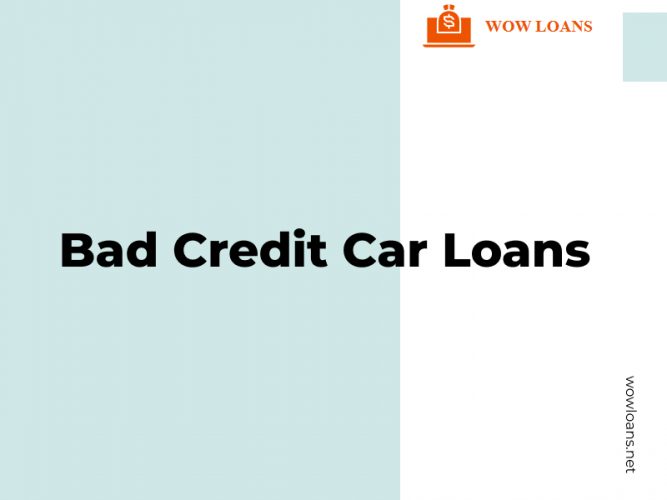
Bad credit doesn’t mean you’re out of options when it comes to car loans. There are specialized lenders who cater to those with a less-than-perfect credit score. Starting by understanding your credit report and working with a financial institution that offers bad credit loans can be a good starting point.
Additionally, you can utilize a reputable loan comparison site to find lenders with flexible terms. These platforms allow you to compare interest rates, loan amounts, and terms from various lenders who specialize in bad credit financing.
Table of Contents
What if I have a bad credit score?
Having a bad credit score is not a dead end for getting a car loan. Specialized lenders consider factors like your employment history, income level, and other financial stability indicators, rather than just your credit score.
If you’re working on improving your credit, consider taking a secured loan or having a co-signer. Both of these approaches can offer you more favorable terms and enable lenders to view your application more favorably.
How do I budget for a bad credit car loan?
Budgeting for a bad credit car loan means considering the monthly payments, interest rates, and the loan term. Use an online loan calculator to estimate your monthly payments and build it into your budget.
Remember, a larger down payment can decrease your monthly payments. Save for a down payment if possible, and always be aware of any potential hidden fees or charges that might be associated with the loan.
Should I take a bad credit payday loan?
Bad credit payday loans may seem like an easy solution, but they often come with very high interest rates and fees. Consider this option carefully, as it can lead to a cycle of debt.
There are usually better alternatives, such as personal loans from credit unions or banks that offer specialized loans for those with poor credit. Research your options and speak with a financial advisor to find the best fit for your situation.
The Importance of Co-Signers
A co-signer with a higher credit score can significantly improve your chances of securing a car loan. This person guarantees the repayment of the loan if you default, giving the lender more confidence in your application.
Having a co-signer can also lead to lower interest rates. However, it’s essential to understand that the co-signer is also responsible for the loan, which can affect their credit. Both parties need to be clear on the terms and responsibilities.
Rebuilding Your Credit Before Applying
Improving your credit score before applying for a loan can open up better options and lower interest rates. Start by paying off outstanding debts, avoiding late payments, and using credit responsibly.
It can also be helpful to work with a credit repair service or financial counselor. They can guide you on best practices to improve your score and help you navigate the complexities of credit reporting.
Options for No Money Down Car Loans
A no money down car loan can be appealing for those without savings, but it often means higher monthly payments and interest rates. Some lenders specialize in these loans, even for those with bad credit.
Be cautious with these types of loans, as they can end up costing more over the life of the loan. Always compare the total cost of the loan, and if possible, consider saving for a down payment to reduce long-term costs.
Applying and Preparing for a Bad Credit Car Loan
When applying for a bad credit car loan, have all necessary documentation ready. This includes proof of income, employment, residence, and any other information that demonstrates financial stability.
It’s essential to understand the terms of the loan, including interest rates, fees, and any penalties for early payment. Never hesitate to ask questions, and consider having a financial expert review the terms with you.
Understanding Trade-Ins, Checking Accounts, and Lines Of Credit
Trading in your old vehicle can reduce the amount you need to finance, possibly leading to better terms. Be sure to research the value of your trade-in and negotiate to get the best deal.
Having a stable checking account and lines of credit can also positively influence a lender. It demonstrates financial responsibility and can lead to a more favorable view of your application.
Requirements for a Fixed Address and Additional Fees
Many lenders require proof of a fixed address to ensure stability. This information usually includes recent utility bills or a lease agreement. Make sure you have these documents ready when applying.
Watch out for additional fees, such as loan origination or processing fees. These can add to the cost of the loan, so be aware of them, and don’t hesitate to ask the lender to clarify any additional charges.
Researching and Choosing the Right Loan Option
Spend time researching different lenders and loan products to find the best fit. Look for customer reviews, compare interest rates, and consider the reputation of the lender.
Don’t rush the decision-making process. If possible, speak with a financial advisor to ensure you understand the pros and cons of different loan options and choose the one that aligns with your long-term financial goals.
Buy Here Pay Here as Your Last Choice
Buy Here Pay Here (BHPH) dealerships provide in-house financing, often with little or no credit check. While this can be appealing for those with bad credit, it often comes with higher interest rates and less favorable terms.
Only consider BHPH as a last resort. Always explore other options first, and if you do choose a BHPH loan, be sure to read and understand all the terms and conditions, as they can vary widely from one dealership to another.